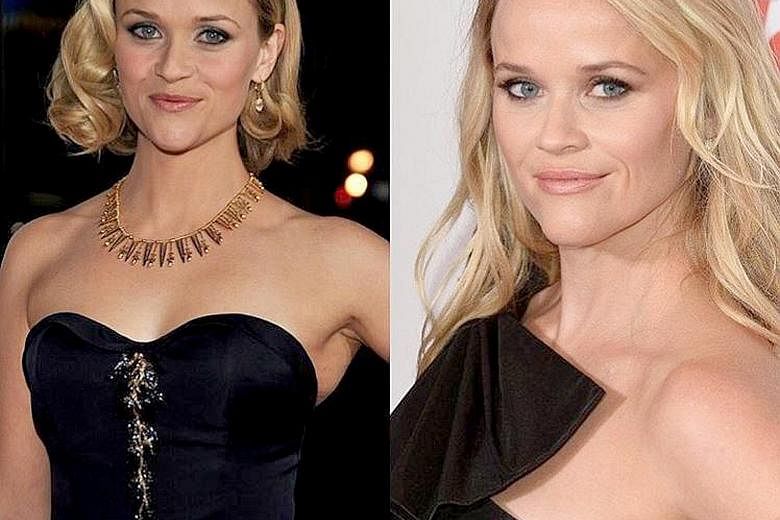NEW YORK • The #10YearChallenge was all fun and memes until a recent tweet moved thousands of people to worry: Are we unknowingly helping giant corporations to improve their algorithms for biometric identification and age progression?
The #10YearChallenge gained widespread traction on social media this month. It calls for posting two photos of yourself side by side - one from today and one from a decade ago - to show how you have changed.
People are participating mostly on Facebook and Instagram, which is owned by Facebook.
Some made jokes, paid tribute to old hairstyles or drew attention to issues such as global warming. Celebrities posted glamour shots that showed negligible changes from one decade to the next.
But one post went viral without featuring any side-by-side photos at all. It was written by Kate O'Neill, author of the book Tech Humanist: How You Can Make Technology Better For Business And Better For Humans.
"Me 10 years ago: probably would have played along with the profile picture ageing meme going around on Facebook and Instagram," she wrote in a tweet on Jan 12.
"Me now: ponders how all this data could be mined to train facial recognition algorithms on age progression and age recognition."
O'Neill's words hit a nerve. People responded with concerns about whether they were helping the tech giant get better at identifying people. Her post got more than 10,000 retweets and more than 20,000 likes. She expanded on her thoughts in a widely shared article in Wired.
Experts said the photos uploaded for the #10YearChallenge were drops in a very, very big bucket of data that Facebook has been collecting for years.
"We have an awful lot of data that we're sharing all the time, and companies are collecting it and using it in various ways," O'Neill said, adding that she was not trying to stoke any panic.
Supporters of facial recognition technologies said they can be indispensable for catching criminals or finding missing people. But critics warned they can enable mass surveillance or have unintended effects that we cannot yet fully fathom.
Dr Lauren A. Rhue, an assistant professor of information systems and analytics at the Wake Forest School of Business, said the #10YearChallenge could conceivably provide a relatively clean data set for a company that wanted to work on age-progression technology.
But she added that Facebook already has billions of photographs on its platform, and people should be wary of any company being in possession of such a large trove of biometric data.
"The risk in giving up any type of biometric data to a company is that there's not enough transparency, not only about how the data is currently being used, but also the future uses for it," she said, pointing to another form of biometric data, DNA, which is increasingly being used by law enforcement to track down suspects - something many people might not have anticipated when they volunteered saliva in exchange for help tracing their ancestral roots.
"There are things we don't think of as being threats," Dr Rhue said. "And then five or 10 years from now, we realise that there is a threat, but the data has already been given."
Facebook said the 10-year challenge is just a fun trend.
"The 10-year challenge is a user-generated meme that started on its own, without our involvement," the company said on Twitter.
Similar memes have popped up in past years too. But this time, users are grappling with new concerns about a platform that helps people to stay in touch with grandparents but has also been used as a tool of election interference.
O'Neill said she was glad that the meme - and her tweet - started such a broad conversation about facial recognition and privacy.
"There's a lot of opportunities for technology to do wonderful things for humanity," she added. "But I think we need to recognise the potential downsides of it."
NYTIMES

